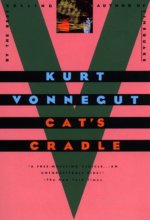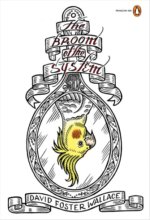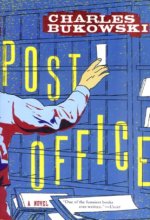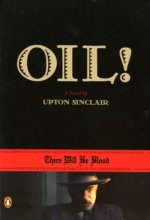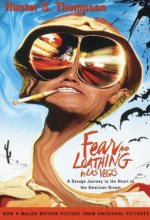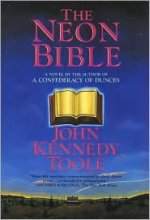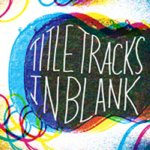Cat's Cradle - Kurt Vonnegut (1963)
For my second attempt at a Kurt Vonnegut novel, I went with Cat's Cradle on my friend Brian's recommendation. While I still didn't completely love it, I would say its still an improvement over Slaughterhouse-Five (even if it was published earlier). From my knowledge Cat's Cradle seems to be typical Vonnegut fare, with symbolic, flowery language laced with clever puns. The plot pretty much runs the gamut. It begins with a writer who decides to research one of the inventors of the A-Bomb, and then ends up meeting a variety of zany characters, including the inventor's children, in the process. The story quickly unravels into a journey to a foreign island with apocalyptic results. With themes touching extensively on science, technology and religion, Vonnegut's analogies and imagery is varied and often times quite beautiful. There are a lot of characters, which isn't surprising at all, and they are all fun, weird and charming in their own way. I guess my main issue with the book is how difficult it is to keep track of all them. Also, I will admit, sometimes Vonnegut's way with words gets a little on my nerves. But, while my high expectations for Cat's Cradle weren't quite met, it was still a very enjoyable read.
The Broom of the System - David Foster Wallace (1987)
I wouldn't say that The Broom of the System, the debut novel by post-modern fiction's tragic god, David Foster Wallace, is necessarily the best book I've read all year, but, it comes damn close. Not only could I barely put the book down, it was the most fun I've had reading any book since I can remember. Infinite Jest is definitely the better (technically speaking) and more mature work of art, but I think the flaws and perhaps juvenile nature lend a certain charm to The Broom of the System. Wallace, who probably owes quite a bit to Thomas Pynchon here, still has woven an utterly complex and outright zany tale that is brighter and infinitely less dense in plot and emotion than his masterstroke, thankfully. That's not to say that TBotS isn't littered with intermingling story lines that are easy to get lost in, they are just less difficult to follow than I expected. All the characters are lovable, even the most loathe-worthy ones. Wallace's love of language is apparent and perhaps the most enjoyable element of the novel. I want to divulge as much as I can in regards to the story and all the layers within, but then this post would read for a mile, and I'd be up way too late. Trust me that you should definitely read The Broom of the System. I don't think I can recommend another book that I've read in 2011 any higher, with the exception of maybe A Confederacy of Dunces. I absolutely cannot wait to read Wallace's posthumously published third novel, The Pale King, when it is released in paperback form.
Post Office - Charles Bukowski (1971)
A little over a year ago, my friend Leah was telling me I should read some Charles Bukowski, and I hadn't put much thought into it since, until I discovered that my new housemate Ian owns his debut novel, Post Office. It was an incredibly quick read as, for one, Bukowski's style and flow are easy to follow, at least here, and two, it's not even 200 pages long. I easily devoured the novel in one day, but I'll admit that while I don't necessarily wish it was a longer book, I wouldn't have minded spending a little more time on it. The novel's title is a good indication of what the plot is: dude works for the post office for 12+ years, first as a carrier, then after a relatively short break, he returns as a clerk. Slightly deeper down (though Bukowski makes it obvious), Post Office really is about smoking, drinking, screwing, finding ways to not have to work hard, and putting up with overbearing supervisors and ridiculously demanding "customers." It is simple, dark, fun and hilarious most of the time. Read it.

